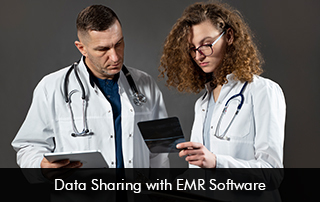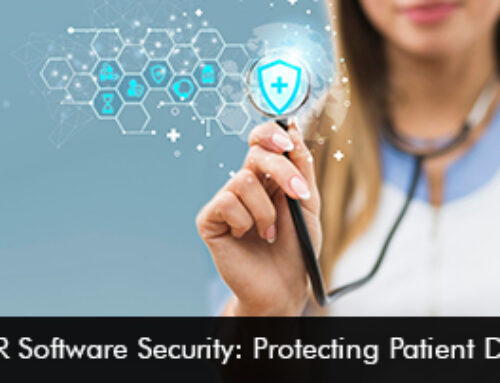Healthcare has been advanced with innovative tools and features offered by Electronic Medical Records (EMR) Software. The robust software systems act as digital storage of patient records and go beyond that by enhancing patient care and streamlining workflows. With EHR Software, providers are empowered to share different types of patient data with other clinicians to offer holistic care and reduce care fragments.
Why Data Sharing is Important in Healthcare with EMR Software
Better Patient Care
The smooth exchange and sharing of comprehensive patient data between care teams facilitates care coordination, which is the cornerstone of improved healthcare delivery. Thus, all providers are on the same page and empowered to provide safe and coordinated care to their patients, improving health outcomes.
Improved Collaboration
Different specialists and primary care providers can collaborate seamlessly with strong interoperability options in EMR Software Systems. When physicians can easily access all patient records transitions are smooth.
Time and Cost Savings
The efficient and swift sharing of patient data with Electronic Health Records Software eliminates the need for redundant tests and procedures. This helps to save time and healthcare costs for both providers and patients.
Enhanced Patient Engagement
Active patient participation is encouraged with data sharing. Patients can access their health records on the go. Better patient engagement leads to improved satisfaction scores.
Types of Data Shared via EMR Software
- Patient Demographic Data
- Clinical Data including medical histories and progress.
- Lab Results and Pathology Reports
- Medication Records having prescription dosages.
- Allergy information including drug-to-drug interactions to avoid adverse effects.
- Social Determinants of Health
- Genetic and Genomic Data
Ensuring Secure Data Sharing with EMR Software
The security of patient data is vital when sharing data with EMR Systems. To meet all security protocols EHR Software vendors ensure that the software is HIPAA-compliant. Other security measures include:
- Strong Encryption
- Access Controls
- Audit Trails
- Interoperability Standards such as HL7 and FHIR.
Secured data sharing can protect it from data breaches and cybersecurity attacks. 72% of cybersecurity attacks are due to ransomware. Healthcare systems in the USA can be disrupted and can face hefty financial losses if patient data is not secured properly.
The Future of Data Sharing in Healthcare
The integration of Artificial Intelligence, blockchain, and the use of cloud-based EMR Software is revolutionizing data sharing. These solutions are making data sharing more secure, and taking patient care to the next level. EHR Software data sharing is a great way to provide connected care and enhance the overall efficiency of the healthcare ecosystem.







